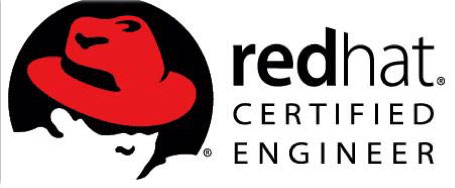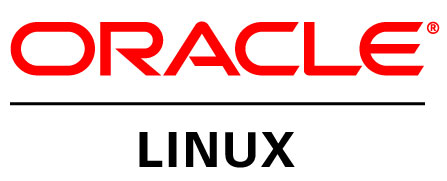Top 5 Linux certifications for 2020
Technology professionals certainly understand the importance of Linux certification in the IT industry. In particular, if you are looking for a better position in the Linux field, obtaining certain certifications is a must.
So, let's explore the top 5 Linux certifications you should consult if you're going to be far in this area.
Top top Linux certifications in 2020
- 1. LINUX + CompTIA
- CompTIA Linux Certification (LX0-103)
- CompTIA Linux Certification (LX0-104)
- 2. RHCE- Red Hat Certified Engineer
- 3. GCUX: GIAC Certified UNIX Security Administrator
- 4. Oracle Linux OCA & OCP
- 5. LPI certificate (Linux Professional Institute)
- LPIC- 1: Linux Administrator (Linux Administrator)
- LPIC- 2: Linux Engineer
- LPIC-3: Linux Enterprise Professional Certification
- Latest certification in LPIC
1. LINUX + CompTIA
 LINUX + CompTIA
LINUX + CompTIA For nearly two decades, employers have used this certification as a skill standard to employ any IT professional. Therefore, achieving this certificate has become a demand for all individuals who are eager to participate in this IT field.
CompTIA Linux + is one of the popular Linux certifications for essential and common management and usage tasks for all Linux distributions. To get this Linux + certification, you must pass two tests CompTIA Linux Certification (LX0-103) and CompTIA Linux Certification (LX0-104).
CompTIA Linux Certification (LX0-103)
This test covers some of the following areas:
- GNU and UNIX commands
- system architecture
- Package management and Linux installation
- Equipment, Linux file system, standard file system hierarchy
CompTIA Linux Certification (LX0-104)
This test covers some of the following areas:
- Security
- Data management, script writing, shell
- User interface and desktop
- Administrative duties
- Essential system services
- Basic network
Both tests have 60 multiple choice questions, taken within a 90 minute time limit. The passing score is 500 on a 200 - 800 scale. You will receive a LINUX + CompTIA certificate if you pass both tests.
2. RHCE- Red Hat Certified Engineer
 RHCE- Red Hat Certified Engineer
RHCE- Red Hat Certified Engineer With the 'dominance' of the Linux world, there is another important certification called the RHCE - Red Hat Certified Engineer. This is really one of the outstanding Linux certificates.
Red Hat senior certificates are quite popular. Therefore, you must have high-level certificates to be employed in top organizations. And if you have this certificate, there are many different roles that you can assume, such as senior Linux administrator, senior system engineer, IT analyst, senior UNIX administrator, etc. .
This is one of the best Linux certifications that any Linux expert must achieve. That is why it is not easy to get it. To get a Red Hat Certified Engineer, you must first obtain the Red Hat Certified System Administrator (RHCSA), then pass the 3-and-a-half-hour test, practice and exams.
If you have achieved RHCE, you are eligible for RHCA (Red Hat Certified Architect) certificates including:
- RHCA: Application development
- RHCA: Datacenter (Data center)
- RHCA: Cloud
- RHCA: DevOps
- RHCA: Application platform
So in short, if you are looking for a better position in any IT organization, you should get a RHCE certificate - Red Hat Certified Engineer.
3. GCUX: GIAC Certified UNIX Security Administrator
 GCUX: GIAC Certified UNIX Security Administrator
GCUX: GIAC Certified UNIX Security Administrator This is one of the Linux certifications that demonstrates the ability to secure and test Linux / UNIX systems. The purpose of this certificate is to train the installation, configuration and monitoring of both Linux and UNIX systems. So, like any other Linux certification exam, this test also has a few requirements:
- 75 questions
- 1 rigorous, supervised exam
- Time limit: 2 hours
- Minimum passing score of 68%
Basically, candidates will understand the physical and password security issues for both UNIX and Linux systems. This test even tests the candidate's ability to understand Chroot, such as how to configure its service, its environment, how to configure it with chroot, and everything else about Chrooting. In addition, some other areas of UNIX and Linux are included, such as installing and fixing operating systems, user accounts, password access control, SUDO, etc.
This Linux certification is recommended for all Linux professionals. It includes more than 35 security certificates belonging to different categories, as mentioned above.
4. Oracle Linux OCA & OCP
 Oracle Linux OCA & OCP
Oracle Linux OCA & OCP This Linux certification involves gaining skills and capabilities related to Oracle products, as well as technology. To pass exams and gain certification, you need to pass multiple exams, training and performance-based exercises, depending on the level of certification.
With 6 certification levels - Oracle Certified Junior Associate (OJA), Oracle Certified Associate (OCA), Oracle Certified Professional (OCP), Oracle Certified Master (OCM), Oracle Certified Expert (OCE) and Oracle Certified Specialist (OCS) , A candidate needs to master all the stages to get a good position in a reputable IT company.
The certificate consists of two exams, which are:
- OCA-1Z0-100 Oracle Linux 5 and 6 System Administration , including 80 questions, required at least 61%.
- OCP-1Z0-105 Oracle Linux 6 Advanced System Administrator , has a total of 97 questions and also requires a pass at least 61%.
5. LPI certificate (Linux Professional Institute)
 LPI Certification (Linux Professional Institute)
LPI Certification (Linux Professional Institute) Started in 1999 by Linus Torvalds, these Linux certifications are becoming increasingly important to any Linux expert. This program is available in 3 different levels, which are:
LPIC- 1: Linux Administrator (Linux Administrator)
This is a base level Linux certificate with no requirements. Applicants need to pass 2 tests, covering all basic Linux skills, including installing and configuring Linux on the workstation, performing maintenance tasks, creating a LAN or Internet connection, etc . Having CompTIA Linux + issued by LPI will qualify you to receive both Linux + and LPIC-1 certificates.
LPIC- 2: Linux Engineer
This is an advanced level Linux certificate, requires a valid LPIC-1 certificate. LPIC-2 has two tests. The first test consists of things about the file system and device, kernel, system boot, network configuration, system maintenance and even capacity planning. The second test involves email services, network client management, domain server, system security and troubleshooting, etc.
LPIC-3: Linux Enterprise Professional Certification
This is a high-end Linux certification, requiring a valid LPIC-2 certificate, in addition to passing any test in a series of 300 tests. This certification includes exam IDs:
- 300: Mixed Environment ( Mixed Environment )
- 303: Security (Security)
- 304: Virtualization and High Availability (Virtualization and high availability)
300: Mixed Environment includes Samba, works with Linux & Windows clients, plus OpenLDAP.
303: Security includes operations, application and network security, besides encryption and access control.
3304: Virtualization and High Availability includes high availability and virtualization cluster participation and storage.
Latest certification in LPIC
The latest LPI certification is LPIC-OT DevOps Tools Engineer , which allows Linux professionals to use the tool to collaborate in software and system development. The test has 60 questions and lasts about 90 minutes.
You should read it
- ★ Secure the installation of ISPConfig 3 with Certificate Class1 SSL of StartSSL
- ★ 14 interesting Linux commands in Terminal
- ★ What is a Certificate Authority? What is CA?
- ★ Apache 2 supports SSL / TLS: Step-by-step instructions (continued Part II)
- ★ Configure Windows Server 2008 to remotely access SSL VPN Server (Part 4)